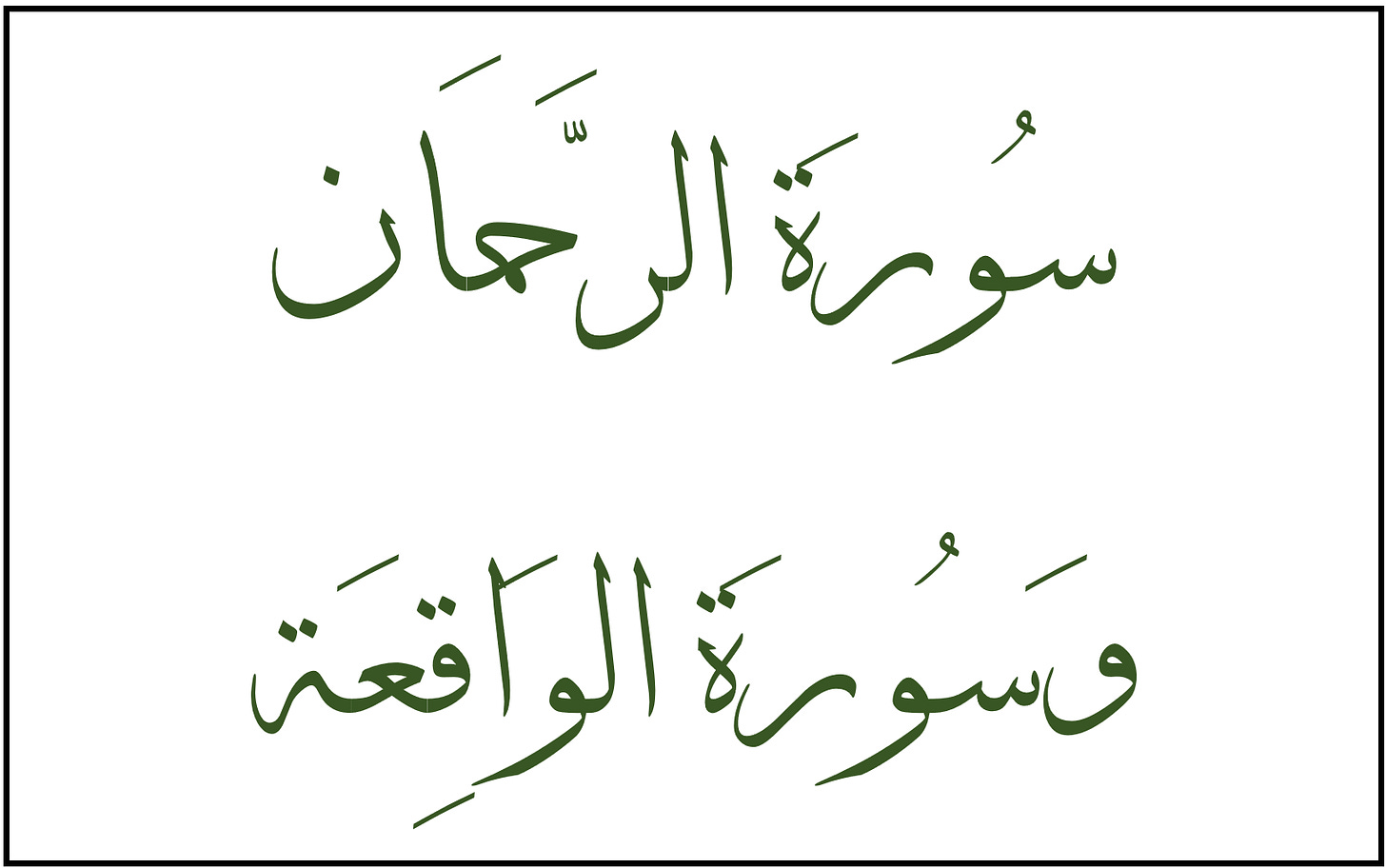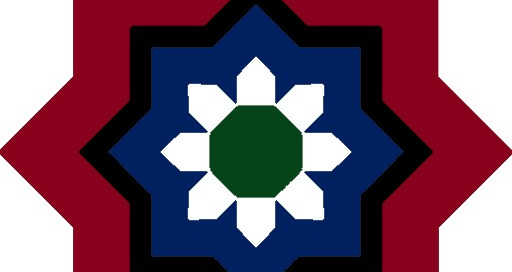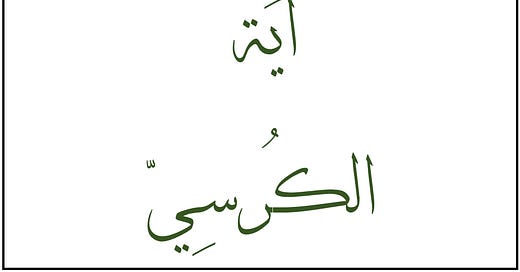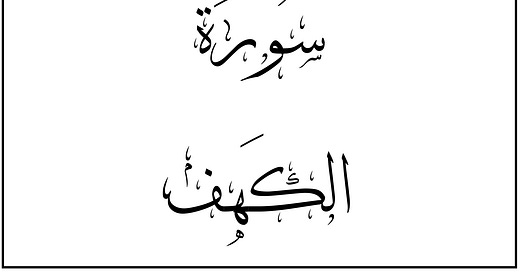
Sūrah ar-Raḥmān and Sūrah al-Wāqi'ah
Observations of the unique relationship between Sūrah ar-Raḥmān and Sūrah al-Wāqi'ah
We’ve observed the internal structure of many, many suwar and āyāt, but we have yet to look at the organizational relationship between two different suwar. To introduce this particular study we will begin with the pairing of the 55th and 56th suwar of the Quran, Sūrah ar-Raḥmān (The All-Merciful) and Sūrah al-Wāqi'ah (The Inevitable Event), respectively.
The mirroring between the two suwar can be seen below with the relevant āyah numbers shown in parenthesis. For the sake of brevity, all Arabic text has been omitted. We encourage you to consult the original Arabic and translation before proceeding (here and here).
Connections
To start, the two suwar share similar endings: “Blessed is the Name of your Master, Owner of Majesty and Honor” (55:78) and “So exalted is the name of your Master, the Most Great” (56:96). The divine titles “Owner of Majesty and Honor” and “the Most Great” also both occur earlier in their respective suwar (55:27; 56:74).
56:1-10 describes the judgment and identifies the three classes of people whose fates are descried in each of the two halves. Thus, it not only serves as an introduction to Sūrah al-Wāqi’ah, but also summarizes the majority of Sūrah ar-Raḥmān (55:26-78).
Sūrah al-Wāqi’ah concludes with a latch (56:83-95), a feature of some ring structures similar to an epilogue and reaffirms the central idea or ideas of the composition. This latch provides a final summary, listing again the three kinds of people and their destinations, and concluding with the statement, “Indeed, this is the certain truth” (56:95).
A/A’
After Sūrah ar-Raḥmān introduces Allah ﷻ as “The All-Merciful,” it goes on for twenty-four āyāt listing the All-Merciful’s favors on mankind and jinn. The very first favor listed is that “He taught the Quran". Sūrah al-Wāqi’ah contains a corresponding section about the Quran in which Allah ﷻ swears that “it is a noble recital (qurān)” (56:77) and “a revelation from the Master of all peoples” (56:80). The swearing of the oath “by the places of the stars” and the references to the heavenly tablet and angels underscore that the Quran is a gift from the Creator of the universe.
B/B’
Sections [B] and [B’] list some of the wonders and blessings of Allah’s creation. Both lists include the creation of man (55:3, 14; 56:57-62), the growth of crops (55:11-12; 56:63-67), water (the sea, 55:19-22. 24; rain, 56:68-70), a mention of fire (55:15; 56:71), and trees (55:6; 56:72-73).
C/C’
Both sections describe the impending judgment and punishment. In [C’], the criminals who will receive punishment are labeled as “the people of the left hand,” because they will receive their book of deeds in the left hand (cf. 69:25). Both sections mention the criminals’ “denial” (55:43, plus the refrain “which of the favors of your Master will you deny?”; 56:51) and the punishment of scalding water for them (55:44; 56:42, 54).
D/D’
[D] describes a level of Paradise characterized by two gardens, which will surround the inhabitants from both sides as they enter them. [D’] portrays the rewards of the “companions of the right hand,” people who will have passed the examination on Judgment Day, receiving their book of deeds in their right hands (cf. 17:71; 69:19; 84:7). The rewards listed in the two sections closely correspond:
E/E’
Finally we arrive at the center which is a bit contested in terms of its correspondence. [E] depicts two more gardens, but most commentators of the Quran argue that these are of a lower rank compared to the previous pair of gardens [D], since they are introduced as min dūni-himā - a phrase that can mean “below them” - and because the rewards described in these two gardens appear less impressive in quality. Nonetheless, the phrase min dūni-himā can also simply mean “besides them,” and there is a strong case that the descriptions of this second pair of gardens actually had the greater appeal to the first audience of the Quran; the pre-Islamic Arabs.
First, let us juxtapose the Paradise of [D] to the Paradise described in [E] so that we may better understand the following analysis:
The previous gardens were described as having “shading branches” [D1]. These gardens [E1], on the other hand, are described as “dark green” (mudhāmatān), a word used nowhere else in the Quran and which suggests abundant leaves and foliage as well as profound beauty, uniqueness, and mystery.
The previous gardens were said to have two springs that are “flowing” [D2]. In contrast, these gardens in [E2] have two springs that are “gushing,” which is a more powerful image.
Additionally, these gardens are said to contain “fruit, date palms, and pomegranates” [E3]. Although the previous gardens in [D3] were said to contain “every fruit, in two kinds,” the specific mention of “date palms” and “pomegranates” in association with these gardens suggest that their fruits are catered to the higher tastes of the original Arab audience, while the unqualified mention of “fruit” may be intended to encompass the two kinds of every fruit mentioned of the previous gardens and even more. As an additional point, in [E’], those closest to Allah ﷻ are described as “a multitude from earlier generations and a few from later generations.” The Arabs were majority of the “earlier generations” at the dawn of the Muslim community, so it makes sense that the fruits are catered to their specific tastes.
While the maidens of the previous gardens in [D5] were described as “limiting their glances,” the maidens of these gardens in [E4] are described more exquisitely as being “sheltered in pavilions.” While the beauty of the maidens of these previous gardens was expressed by their comparison to “rubies and coral,” the beauty of the maidens of these gardens is first stated in general terms and then given a more concrete but tantalizing example in their description as “houris” (ḥūr), women distinguished with beautiful eyes that are marked by a deep contrast of white and black. The same word, ḥūr, is used in Sūrah al-Wāqi’ah when describing the delights for al-muqarrabūn (those closest to Allah) [E’].
The previous gardens were said to contain beds and the quality of their lining was described [D4]. In the case of the gardens in [E5], it is the quality of their cushions that is highlighted; cushions being a greater symbol of luxury. These gardens are further described as having “beautiful carpets,” which are ‘abqarī - a word signifying exquisite design and craftmanship, and which additionally carries a sense of mystery and otherworldliness, being an ascription to a fabled land of the jinn, in pre-Islamic Arab folklore.
Looking at the two passages again as a whole we see the progression in [D] climaxes with the pure spouses seated with the companions of Paradise. On the other hand, [E] switches the last two rewards and ends with the inhabitants of Paradise reclining on couches with no mention of anyone with them.
From a literary point of view, it seems strange that Sūrah ar-Raḥmān would not end on a high note. So if we continue to assume that [E] is the higher level of Paradise, the seating must be a higher reward than the company of the maidens. This actually corresponds to ending of the sūrah before Sūrah ar-Raḥmān, Sūrah al-Qamar (The Moon) in which Allah ﷻ says:
إِنَّ الْمُتَّقِينَ فِي جَنَّاتٍ وَنَهَرٍ* فِي مَقْعَدِ صِدْقٍ عِندَ مَلِيكٍ مُّقْتَدِرٍ
Indeed, the righteous will be among gardens and rivers, (54) In a seat of honor near a Sovereign, Perfect in Ability. (55)
So the unmentioned company might be that of Allah ﷻ.
Finally, [D] ends with the rhetorical question, “Is the jazā’ (reward) for iḥsān (excellence) anything but iḥsān?” This is different than the ending of [E] with the list of blessings reaching their literary climax with Allah’s name (“Tabāraka (Blessed beyond expectation) is the Name of your Master, Owner of Majesty and Honor”).
What is being suggested is that the lower Paradise in [D] was associated with jazā’ (reward) and human effort while the higher Paradise was associated with Allah’s blessings [E], meaning He has gone beyond reward for the higher Paradise. The āyah doesn't even mention who is deserving of the higher level of Paradise near Allah ﷻ. It’s as if so say, it is beyond earning. It is not a reward, as one cannot do enough to earn this, and all you can say is that Allah’s name is full of blessings.
والله أعلم - And Allah knows best
Sources
Ali Khan, Nouman and Sharif Randhawa. Divine Speech: Exploring the Quran as Literature. Bayyinah Institute, 2016.
Khan, Nouman. “Lessons From Surah Ar Rahman - Ustadh Nouman Ali Khan” YouTube, uploaded by Bayyinah Institute, Sep 28, 2013, https://youtu.be/BZ2l6INwynw?t=1118
Nouman Ali Khan’s reflections were built upon the research and reflections of Shaykh Hamiduddin Farahi (http://docvault.tadabbur-i-quran.org/tadabbur-text/volume-8/55/55%20Surah%20Rahman.pdf) and Dr. Israr Ahmed














Has any traditional exegetes accepted this understanding? I'm speaking about scholars such as zamakhshari, Abu Hayyan, Ibn kathir, Alusi etc.